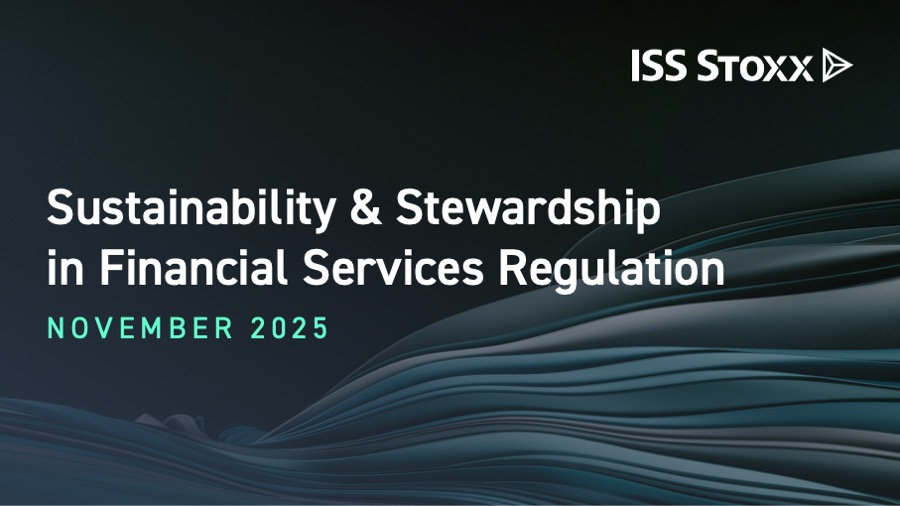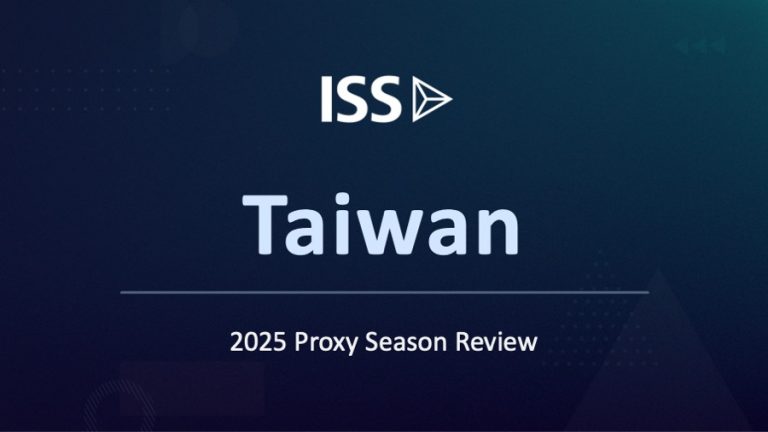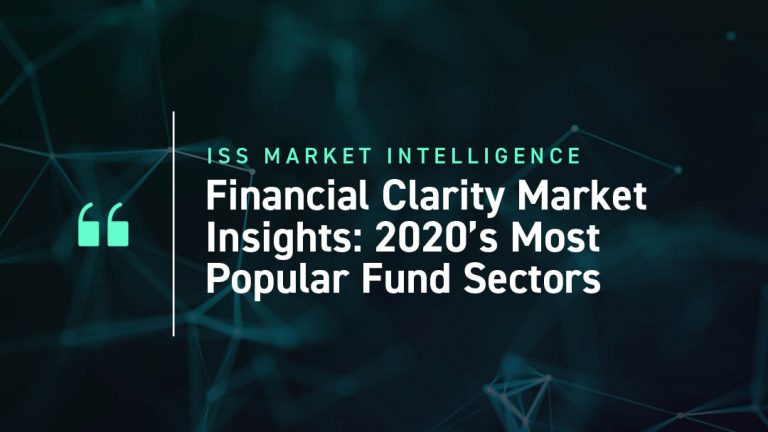


SBTi
The Science Based Targets Initiative Opens Consultation on Urgent Updates to the Forest, Land and Agriculture Criteria
The Science Based Targets initiative (SBTi) opened a public consultation on a series of “urgent” revisions to the Forest, Land and Agriculture (FLAG) Criteria on October 7. The consultation is part of an ongoing, general review of Standards and Guidance. The SBTi has identified two FLAG Criteria (1 and 4) that require updates to maintain their relevance to ambitious carbon-reduction target setting. Specifically, the SBTi is proposing a requirement for companies in the FLAG sector to set targets before the end of their mandatory five-year review period, rather than within 6 months of the GHG Protocol Land Sector and Removals Guidance publication. Relatedly, the proposed revisions include a new timeframe of two years to eliminate deforestation for companies setting FLAG targets for the first time. The consultation remains open until November 6.
ISSB
The International Sustainability Standards Board Announces Initiative to Facilitate the Role of Standards as a Global Passport
The International Sustainability Standards Board (ISSB) Chair Emmanuel Faber announced a new initiative to facilitate use of the ISSB standards as a global passport at the ISSB Symposium on October 30. The initiative seeks to address potential fragmentation as more jurisdictions introduce sustainability-related disclosure requirements by encouraging the introduction of passporting provisions that would reduce costs for preparers while still accommodating national specificities in sustainability-related disclosure requirements. To facilitate the initiative, ISSB has published a new Jurisdictional Rationale Guide for the adoption or other use of ISSB Standards and an accompanying tool.
IOSCO
The International Organization of Securities Commissions Publishes Its Final Report on ESG Indices as Benchmarks
The International Organization of Securities Commissions (IOSCO) published its Final Report on ESG Indices as Benchmarks on November 3. The report assesses the applicability of IOSCO’s Principles for Financial Benchmarks (PFBs) to ESG indices as well as additional factors that may be specific to ESG indices. The report concludes that IOSCO’s PFBs are broadly applicable to ESG indices but should be complemented with “supplemental considerations to reflect the often bespoke, qualitative, and evolving characteristics of ESG data and methodologies.” For example, IOSCO suggests that the administrators of ESG indices should enhance their governance with respect to the management of qualitative and forward-looking ESG data and evolving standards. Administrators of ESG indices could also consider greater transparency with respect to the design, underlying methodologies, and data limitations of ESG indices and could adjust their compliance procedures to reflect the specificities of ESG indices.


Singapore
Government of Singapore Launches Initiatives to Support the Development of High-Integrity Carbon Markets
Singapore’s National Climate Change Secretariat (NCCS), Ministry of Trade and Industry (MTI), Enterprise Singapore (EnterpriseSG), and the Monetary Authority of Singapore (MAS) announced a series of coordinated actions to support the development of high-integrity carbon markets on October 28. These include: (a) the publication of voluntary carbon market (VCM) guidance on how companies can use carbon credits as part of their decarbonization plans, (b) ongoing discussions with leading companies in Asia to set up an industry-led buyers’ coalition to aggregate demand for high-quality carbon credits, and (c) the introduction of a new Financial Sector Carbon Market Development Grant to support financial institutions’ participation in carbon markets.
Malaysia
The Securities Commission Malaysia Hosts Inaugural Climate Adaptation and Resilience Conference
The Securities Commission (SC) Malaysia hosted its inaugural Climate Adaptation and Resilience (A&R) Conference on October 14. According to the SC, the conference gathered over 400 delegates from ministries and government agencies, financial institutions, climate experts, and academia to discuss the role of capital markets in mobilizing public and private finance for climate adaptation projects. The conference highlighted that climate adaptation initiatives often struggle to attract financing when compared to climate change mitigation projects and the need to enhance their appeal. The conference is part of the SC’s broader Costal Flooding Adaptation & Resilience (COFAR) initiative, which seeks to strengthen the capital market’s role in financing climate adaptation in Malaysia.
South Korea
The Financial Services Commission Approves Revision to the Korean Exchange Disclosure Rules Requiring Listed Companies to Disclose Information on Industrial Accidents
The Financial Services Commission (FSC) of South Korea approved a recent revision to the disclosure rules of the Korean Exchange (KRX) on October 1. According to the revised disclosure rules, listed companies will be required to disclose information on the occurrence of industrial accidents to improve the management of financial risks associated therewith. The FSC has also introduced a rule change proposal intended to strengthen the annual and semi-annual disclosures with respect to the occurrence of industrial accidents. Relatedly, Korean ESG rating institutions such as the Korea Institute of Corporate Governance and Sustainability (KCGS) have made changes to their ESG rating guidance to incorporate the occurrence of industrial accidents into the evaluation of corporate ESG practices.
Australia
The Australian Prudential Regulation Authority Revises Governance Proposals Following Industry Consultation
The Australian Prudential Regulation Authority (APRA) announced on October 24 the revision of a number of proposed measures to modernize Australia’s prudential and governance frameworks for banks, insurers, and superannuation trustees. By way of background, in March, APRA proposed eight measures to update cross-industry prudential standards and guidance on governance. Following a three-month consultation, APRA has decided to revise its original proposals to avoid undue regulatory constraints on boards. Specifically, instead of imposing a 10-year tenure limit for non-executive directors, APRA now proposes a 12-year tenure limit, with the possibility for short extensions in certain circumstances. Similarly, the proposal for banks and insurers to have 2 independent directors (not on other group boards) will not be brought forward. In addition, the proposed requirement for financial institutions to consult with APRA when making responsible person appointments and succession planning will not be introduced. APRA intends to release the finalized draft standards and guidance in Q2 2026.
New Zealand
The New Zealand Government Announces Changes to the Scope of Climate Reporting Obligations and the Financial Markets Authority of New Zealand Grants “No Action” Relief in the Interim
The New Zealand Government announced on October 15 changes to the Financial Markets Conduct Act 2013 (FMC Act) that aim to narrow the scope of New Zealand’s climate-reporting obligations. According to the changes set out in the Financial Markets Conduct Amendment Bill, the reporting threshold for listed issuers would be increased from NZ$60 million market capitalization for equity issuers and, in terms of value of quoted debt for debt issuers, to NZ$1 billion. Managed investment scheme managers are to be removed from the climate reporting regime entirely and will no longer be required to provide annual climate statements.
The changes are currently before the Finance and Expenditure Select Committee of the New Zealand Parliament, which is due to consider the Government’s proposals and report back by January 30, 2026.
In the interim, the Financial Markets Authority (FMA) of New Zealand has granted “No Action” relief to entities affected by the changes while amendments to the FMC Act are being considered by Parliament on October 28. FMA has decided to provide interim relief to ensure entities affected by pending legislative changes have legal certainty.


EU
The European Commission Announces the Delay of Level 2 Acts under Financial Services Legislation
The European Commission (EC) announced on October 6 the delay of several “non-priority” Level 2 acts under various pieces of financial services legislation. The expression “level 2 acts” refers to regulatory and implementing standards that the EC is empowered to adopt under primary EU legislation (or Level 1 acts). Level 1 acts passed in the 2019-2024 legislature envisaged up to 430 level 2 measures. In view of the EC’s regulatory simplification initiative, the EC has decided to de-prioritize the introduction of several level 2 acts under various pieces of legislation relevant to financial services, including the Sustainable Finance Disclosure Regulation (SFDR) and the ESG Ratings Regulation. The full list of deferred level 2 acts is available here.
The European Securities and Markets Authority Publishes Its 2026 Work Programme
The European Securities and Markets Authority (ESMA) published its 2026 Work Programme on October 3. According to the 2026 Work Programme, ESMA will focus on delivering core policy and supervisory mandates while contributing to reform efforts to further the integration, accessibility, and innovativeness of EU capital markets. This will involve supporting the implementation of the Savings and Investments Union (SIU) by pursuing further supervisory convergence with Member States, enhancing market data capabilities, and “actively contributing to upcoming reforms.” In addition, ESMA also intends to prioritize projects intended to drive market integration and innovation through the use of data. Key projects in 2026 will include the rollout of the ESMA Data Platform, the development of AI-powered supervisory tools, and the European Single Access Point (ESAP).
ESMA Publishes Report on the Functioning of EU Carbon Markets
ESMA published a report on the functioning of EU carbon markets on October 22. Based on 2024 data, the ESMA report does not identify any significant issue in the integrity and transparency of EU carbon markets. According to the report, emission allowance auctions and secondary market trading dynamics remain largely unchanged.
ESMA Announces 2025 European Common Enforcement Priorities and the Results of Fact-Finding on Materiality Considerations in Sustainability Reporting
ESMA outlined on October 14 the European Common Enforcement Priorities (ECEP) for the 2025 annual financial reports of listed issuers. In the ECEP, ESMA has indicated that issuers should focus on a variety of disclosures in their 2025 annual financial reports. Specifically, in their IFRS financial statements, ESMA has asked issuers to pay particular attention to geopolitical risks and uncertainties and segment reporting. In their sustainability statements, ESMA has indicated that issuers should account for materiality considerations in reporting under the European Sustainability Reporting Standards (ESRS), as well as the scope and structure of their sustainability statements. Finally, in ESEF digital reporting, issuers should avoid common ESEF filing errors found in the Statement of Cash Flows.
In addition, ESMA has published the outcome of its fact-finding exercise on the 2024 corporate sustainability reporting practices of European issuers under ESRS Set 1. The report examines disclosures under the double materiality assessment process.
The European Insurance and Occupational Pensions Authority Publishes New Guidelines to Promote Diversity on (Re)Insurers’ Boards
The European Insurance and Occupational Pensions Authority (EIOPA) published new Guidelines on October 14 about diversity considerations for (re)insurance undertakings. The new Guidelines, which (re)insurers should take into account when selecting members of their administrative, management, and supervisory bodies (AMSBs), were issued following recent amendments to the Solvency II Directive that aim to promote diversity among entities’ decision-makers. The Guidelines aim to promote diversity in the composition of senior function holders on the basis of their education and professional background, age, gender, and geographical origin and set quantitative objectives related to gender balance. The Guidelines will apply as of January 30, 2027.
The ESMA Publishes Final Regulatory Technical Standards under the EU ESG Ratings Regulation and the EU Green Bond Standard Regulation
The ESMA published final Regulatory Technical Standards (RTS) under the EU ESG Ratings Regulation on October 15. The final RTS set out requirements for ESG ratings providers with respect to conflicts of interest; separation of business; and methodological disclosures to the public, ratings users, and the issuers subject to the ratings. When compared to the initial draft RTS published on May 2, ESMA has appeared to soften the final RTS significantly by reducing the granularity of information that ESG rating providers must include in their application for authorization or recognition, and in their methodological disclosures. In addition, final provisions on conflicts of interest and the separation of business provide for more flexibility than originally proposed.
ESMA also published final RTS under the EU Green Bond Standard (EuGBS) Regulation on October 15. These final RTS outline granular requirements for external reviewers of EU Green Bonds. Specifically, the final RTS set out criteria to ensure external reviewers have appropriate, adequate, and effective systems and procedures in place to fulfil their function; an independent compliance function; and sound administrative and accounting procedures; and use reliable sources of information when conducting their reviews.
Both sets of RTS have been submitted to the EC for validation by ESMA.
The EC Publishes Its 2026 Work Programme, Anticipating the Review of the Shareholder Rights Directive
The EC published its Work Programme for 2026 on October 21. The Work Programme identifies the legislative and non-legislative actions that the EC intends to pursue in 2026 and provides a rough indication of the timing of said actions. In the realm of financial services, the Work Programme lists the review of the EU’s Shareholder Rights Directive (SRD), planned for Q4 2026, among its legislative actions for 2026.
UK
The UK Treasury Introduces Secondary Legislation Bringing the Provision of ESG Ratings into Scope of the Financial Services and Markets Act
The UK Treasury adopted a Statutory Instrument under the Financial Services and Markets Act including the provision of ESG ratings within the UK’s regulatory perimeter on October 27. The SI has been laid before the UK Parliament for affirmation, enabling the UK Financial Conduct Authority (FCA) to begin consultation on specific rules for ESG ratings providers with regard to conflicts of interest and transparency of rating methodologies.
The FCA has welcomed the introduction of the SI and indicated that it intends to begin consulting on proposed rules for ESG ratings providers by the end of the year.
The Financial Reporting Council Issues Guidance on the UK Stewardship Code 2026
The Financial Reporting Council (FRC) published guidance on October 30 on the recently adopted UK Stewardship Code 2026. The guidance offers the FRC’s suggestions for how signatories could satisfy reporting expectations under the Code. For example, the guidance specifies the types of information that are most relevant for Code submissions and for explaining an entity’s approach to stewardship. For example, in the case of “proxy advisors,” the FRC highlights that their clients have diverse stewardship objectives and priorities. Communication with clients should enable proxy advisors to cater to clients’ diverse perspectives, and stewardship reporting under the Code by proxy advisors could focus on illustrating such an outcome. The FRC explicitly highlights that the guidance is non-binding and non-prescriptive.


United States
The Chair of the U.S. Securities and Exchange Commission (SEC) Indicates Future Changes to the Interpretation of SEC Rules Governing Shareholder Proposals
In a keynote address at a gathering of the John L. Weinberg Center for Corporate Governance on October 9, Securities and Exchange Commission (SEC) Chair Paul Atkins discussed the need to reverse the trend of declining initial public offerings. He explained that taking a company public “is no longer so ‘cool’ as it once was” due to a range of factors, including the cost and complexity of SEC disclosure requirements, politicization of shareholder meetings, and a litigation landscape for securities lawsuits that enable “frivolous complaints.”
In Chair Atkins’s view, precatory (non-binding) shareholder proposals concerning environmental and social issues have epitomized the politicization of shareholder meetings while requiring companies to dedicate time to issues “not material to the company’s business.” Specifically, Chair Atkins indicated that the SEC staff may begin deferring to a Delaware court proceeding or Delaware law legal opinion regarding whether shareholders have the right to have their precatory proposals addressed by companies; meaning, if it is determined that such proposals are not proper subjects under Delaware corporate law, then the proposals would be excludable from companies’ statements under the SEC’s Rule 14a-8. Chair Atkins also added that the SEC has placed “Shareholder Proposal Modernization” on its regulatory agenda. Specifically, Chair Atkins said the SEC should re-evaluate whether Rule 14a-8 permits shareholders “to force companies to solicit for their proposals – to the extent that a shareholder proposal is a proper subject for shareholder action under state law – at little or no expense to the shareholder.”
The U.S. Energy Secretary and Qatari Energy Minister Send a Letter to the EU Regarding Proposed Corporate Climate Regulation
The U.S. Energy Secretary Chris Wright and Qatari Energy Minister Saad Sherida al-Kaabi sent an open letter to the Heads of State of European Union Member States concerning the EU’s proposed Corporate Sustainability Due Diligence Directive (CSDDD) on October 22. The letter expresses “deep concern over the continued lack of action to address the universally acknowledged, serious, and legitimate concerns raised by the global business community regarding the Corporate Sustainability Due Diligence Directive (CSDDD)” and its potential impact on the availability of reliable and affordable energy for EU consumers. The letter adds that the EU’s Omnibus package “falls grossly short of its aspirations” to simplify the CSDDD. Specifically, the letter calls for the Directive’s extraterritorial scope to be reconsidered, alongside reconsidering the requirement to adopt transition plans and the introduction of penalties and civil liability for companies.



By:
Hugo Gallagher, Associate Vice President, Regulatory Affairs & Public Policy, ISS STOXX
Karina Karakulova, Director of Regulatory Affairs & Public Policy, ISS STOXX




